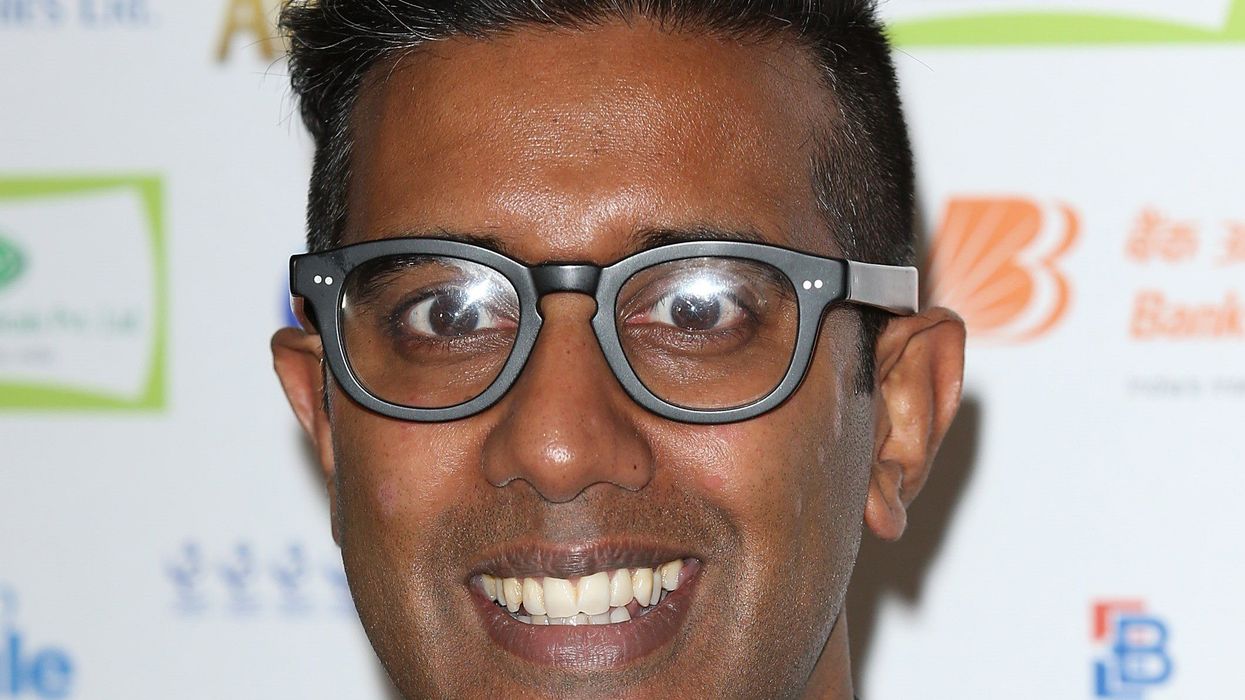BRITISH Sri Lankan broadcaster and author Nihal Arthanayake has spoken of his desire to spend more time in the country of his origin where he sees people “who look like me” and connects “instantly”.
The BBC Radio 5 Live presenter also revealed why it was “unsettling to be a minority” at Stockport in Manchester where he currently lives, as it is a monocultural place which is “very white”.
In a wide-ranging chat with food critic Jimi Famurewa on the Where’s Home Really? podcast – that explores issues of identity among ethnic people – Arthanayake recalled his that his first experience of racism was underwhelming.
Like many Asian public figures, the BBC broadcaster is not immune to being targeted by racist trolls on social media, where he has more than 117,000 followers on Twitter.
In a discussion on what homes means to him, Arthanayake told Famurewa, “The place I want to spend more of my time in as I get older is a house that we have in Sri Lanka.
“Culturally, I feel Sri Lankan and British.
“But there's something about the lure of that country. There's something about the energy in that country… there is something about stepping off that plane, seeing palm trees, hearing nature, seeing the colours that I connect with so instantly.”
Born in Harlow in Essex to Sri Lankan parents, Arthanayake said he asserted his heritage because he was routinely questioned about his Britishness.
“So you will be constantly saying, ‘I'm British, I'm as British as you’ to some racist on Twitter, right?... You shouldn't really engage with racists on Twitter. But when they start saying, ‘Oh, you're not British, you're not that.’ Then you say ‘No, I'm British Sri Lankan. That's what I am’.”
Arthanayake, 51, cut his teeth in the music industry as a rap recording artist before becoming a radio and TV presenter.
He moved from London to Stockport, south of Manchester, where the BBC Studios are and Arthanayake described how “very white and monocultural” the area is.
“It's unsettling to be a minority and feel like a minority because in London, I never felt like a minority. I was never made to feel like I was a minority. But - my own, and it's purely anecdotal - feeling is that I feel really like a minority in this part of the world.
“There can be some quite dark sides to that feeling.”
Followers of Arthanayake on social media are aware of his love for Tottenham Hotspur, but the broadcaster revealed football was “not very welcoming” to him.
Recalling his growing up years in London, he said, “We had a lot of West Ham fans in Harlow town, some of whom were part of their notorious firm the ICF (Inter City Firm). And they were violent, racist thugs. So you ended up kind of slightly tarring football with a thing (like) that.”
He said the experience left him with scars in his mind and “so even today… I cannot really get excited about England”.
“I wouldn't go to West Ham - Tottenham, I wouldn't go… I wouldn't take my kids to that ground as a Spurs fan,” Arthanayake said.
Instead, he found the music industry, and hip hop, in particular, was more welcoming to a person of colour, such as him.
Arthanayake recalled how he was called the P word for the first time in East Ham when he was a child.
“I was in a WH Smith, looking at magazines. And these two or three skinheads came up to me who can't have been that much older than me and said, 'Are you a P***?' And I'd never heard the word before.”
Arthanayake said he must have been 11 or 12 when the incident took place and he was unaware of what the word meant.
“I looked at them and genuinely innocently, because I've just thought it was a case of mistaken identity, and I just went, ‘No, I'm not.’ And then they looked at each other. And they went ‘Oh, all right then’, and then just walked off.”
He added, “My first ever racist exchange was such an underwhelming experience for everyone involved. I wasn't offended. They were disappointed.”




